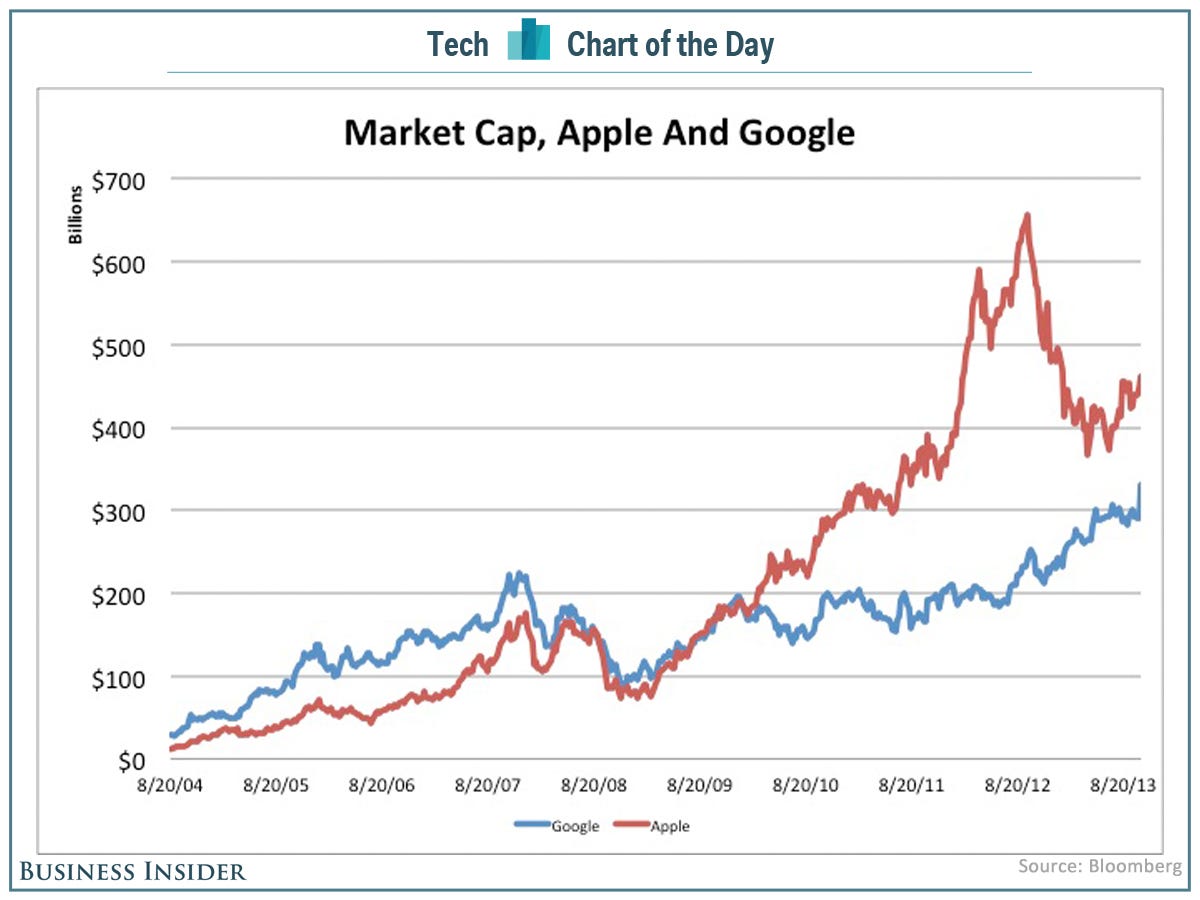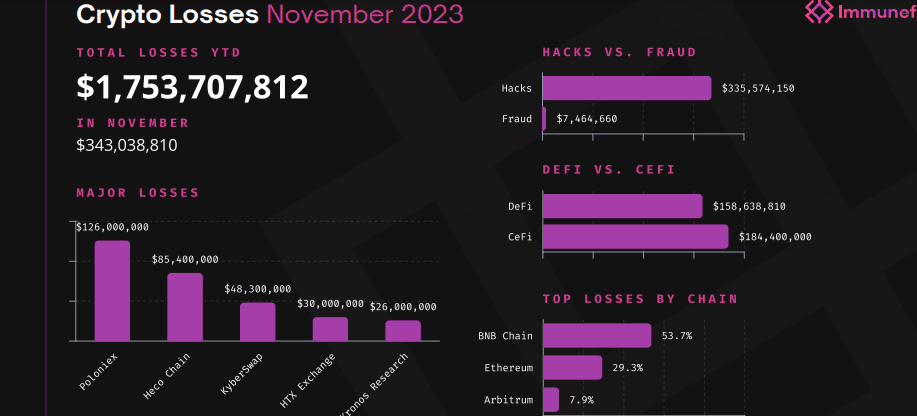Analyzing Apple's Impact On Google's Market Position

Table of Contents
Apple's Control Over iOS and the App Store Ecosystem
Apple's tightly controlled iOS ecosystem significantly impacts Google's market share and growth strategies. This control manifests in several key areas:
Limited Google Services Integration
Apple's restrictions on pre-installing Google apps on iOS devices create a significant hurdle for Google. This "walled garden" approach forces Google to compete for user attention within a highly controlled environment.
- Limited pre-installation means less automatic user adoption of Google services. Unlike Android, where Google services are often pre-installed, iOS users must actively download and install Google apps. This results in lower default usage and market penetration for Google's suite of apps.
- Google relies heavily on app store optimization (ASO) strategies to compete effectively. To overcome the lack of pre-installation, Google must invest heavily in ASO techniques to improve app discoverability and rankings within the Apple App Store.
- Apple's App Store review process can delay updates or even rejection of Google apps. This gives Apple leverage over Google, potentially hindering timely updates and feature releases for Google's iOS apps.
Impact on Search and Advertising Revenue
Apple's control extends to default browser and virtual assistant settings, directly impacting Google's core revenue streams.
- Safari's market share directly impacts Google's search advertising income. As a significant portion of iOS users utilize Safari, a shift in default search engine could severely impact Google's search advertising revenue, a major source of income.
- Siri's integration with Google Search is limited, diverting traffic to Apple's own services. Apple's preference for its own services within Siri limits Google's access to voice search queries, redirecting users to Apple Maps, Apple News, and other Apple services.
- Apple's privacy features impact Google's data collection capabilities for targeted advertising. Apple's emphasis on user privacy, particularly through initiatives like App Tracking Transparency (ATT), restricts Google's ability to collect user data for personalized advertising, impacting the effectiveness and profitability of its ad campaigns.
Apple's Hardware Ecosystem and its Influence on Google's Software Services
Apple’s hardware success creates a powerful competitive force against Google’s software-centric Android ecosystem.
Competition in Hardware Markets
Apple's dominance in the smartphone, wearable, and laptop markets directly competes with the Android ecosystem and impacts Google's related services.
- Increased iPhone sales translate to fewer Android activations and less usage of Google services. A larger iPhone user base directly translates to less usage of Google services integrated into the Android OS. The iOS market share directly correlates with decreased Google service usage.
- Apple's hardware integration and user experience often influence consumer preference away from Android-based solutions. Apple's seamless integration of hardware and software creates a compelling user experience, often influencing consumer choice away from Android alternatives.
The Rise of Apple's Privacy Focus
Apple's strong focus on user privacy challenges Google's data-driven business model.
- App Tracking Transparency (ATT) significantly impacts Google's ability to target ads precisely. ATT requires apps to obtain user consent for tracking, limiting Google's access to user data for targeted advertising, thus reducing the effectiveness of its advertising platform.
- Apple's privacy focus encourages users to choose privacy-centric alternatives to Google services. This pushes users toward alternatives which may offer less functionality or a smaller user base, but prioritizes user privacy over features.
- The increasing regulatory scrutiny of data privacy further exacerbates the situation for Google. Growing global regulatory pressure on data privacy intensifies the challenges faced by Google in balancing its data-driven business model with increasing user privacy demands.
The Strategic Implications for Google
Google must adapt to the challenges posed by Apple's evolving ecosystem and strategies.
Adapting to a Changing Landscape
Google needs to actively adapt to navigate the competitive landscape shaped by Apple.
- Investing in cross-platform solutions to reach users outside of the iOS ecosystem. This includes developing strong web-based applications and focusing on services accessible across all platforms.
- Prioritizing innovation in privacy-preserving technologies. Google must invest heavily in developing technologies that respect user privacy while still providing effective services.
- Strengthening partnerships to access Apple's user base indirectly. Google might seek collaborations with other companies operating within the Apple ecosystem to reach a larger user base.
Future Opportunities and Challenges
The rivalry between Apple and Google will continue to shape the future of the tech industry.
- Focus on developing innovative services that aren't reliant on vast amounts of user data. Google must explore and develop new revenue streams less dependent on extensive user data tracking.
- Explore alternative advertising models less dependent on tracking. This involves research and adoption of new advertising models that respect user privacy without sacrificing revenue.
- Strengthening its own hardware ecosystem to compete directly with Apple. This may involve greater investment in its own hardware offerings to directly compete with Apple's hardware dominance.
Conclusion
Apple's influence on Google's market position is substantial and multifaceted. From controlling the iOS ecosystem to prioritizing user privacy, Apple's actions significantly affect Google's reach, revenue, and overall strategic direction. Google must adapt to this changing landscape by innovating, prioritizing user privacy, and diversifying its revenue streams to maintain its market leadership. Understanding Apple's impact on Google's market position is crucial for anyone analyzing the tech industry's future. To stay ahead of the curve on this dynamic rivalry, continue researching the evolving relationship between these tech giants and their broader impact.

Featured Posts
-
 Khatwn Mdah Ne Tam Krwz Ke Jwte Pr Pawn Rkh Dya Adakar Ka Rdeml
May 11, 2025
Khatwn Mdah Ne Tam Krwz Ke Jwte Pr Pawn Rkh Dya Adakar Ka Rdeml
May 11, 2025 -
 Nikola Okikj I Kevin Khart Neochekuvan Sostanok I Zabaven Moment
May 11, 2025
Nikola Okikj I Kevin Khart Neochekuvan Sostanok I Zabaven Moment
May 11, 2025 -
 Ufc 315 Shevchenko Vs Fiorot Predictions Picks And Odds
May 11, 2025
Ufc 315 Shevchenko Vs Fiorot Predictions Picks And Odds
May 11, 2025 -
 Federal Charges Filed Millions In Losses From Executive Office365 Account Hacks
May 11, 2025
Federal Charges Filed Millions In Losses From Executive Office365 Account Hacks
May 11, 2025 -
 Three Years Of Data Breaches Cost T Mobile 16 Million
May 11, 2025
Three Years Of Data Breaches Cost T Mobile 16 Million
May 11, 2025
